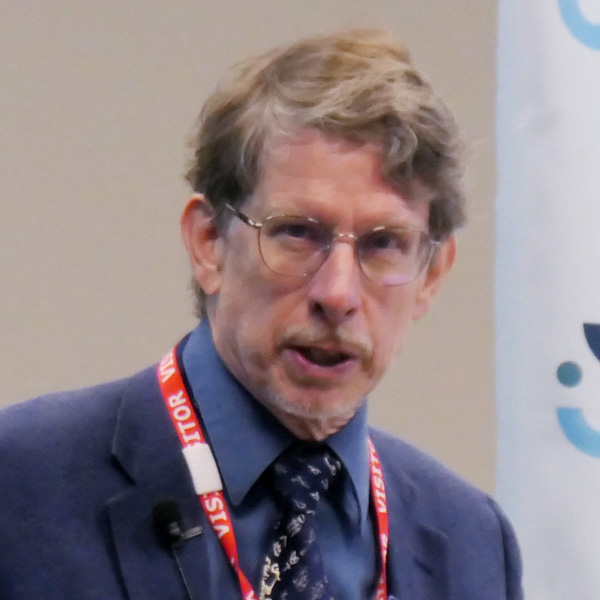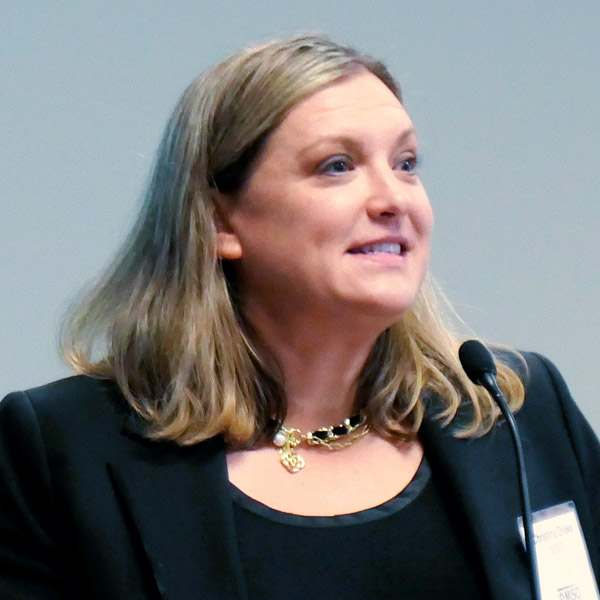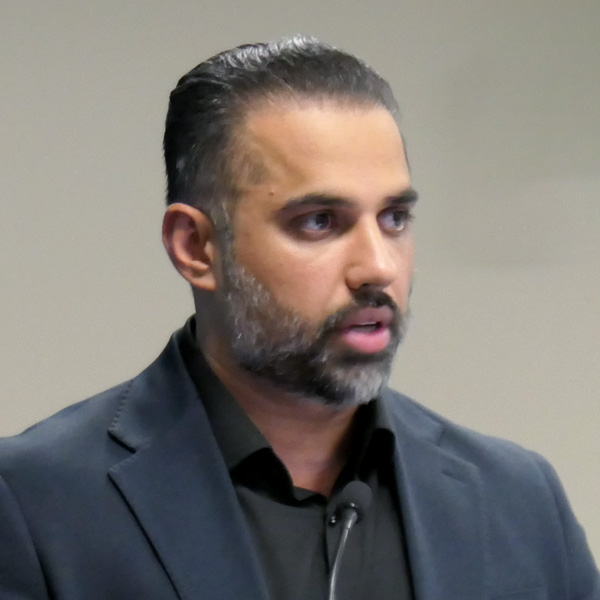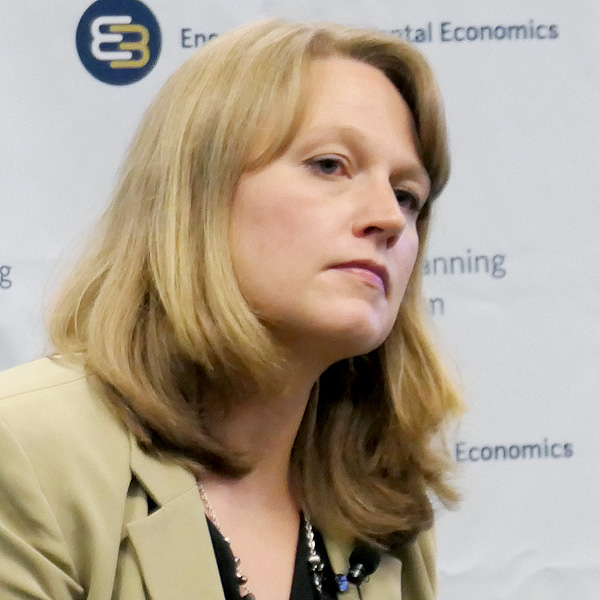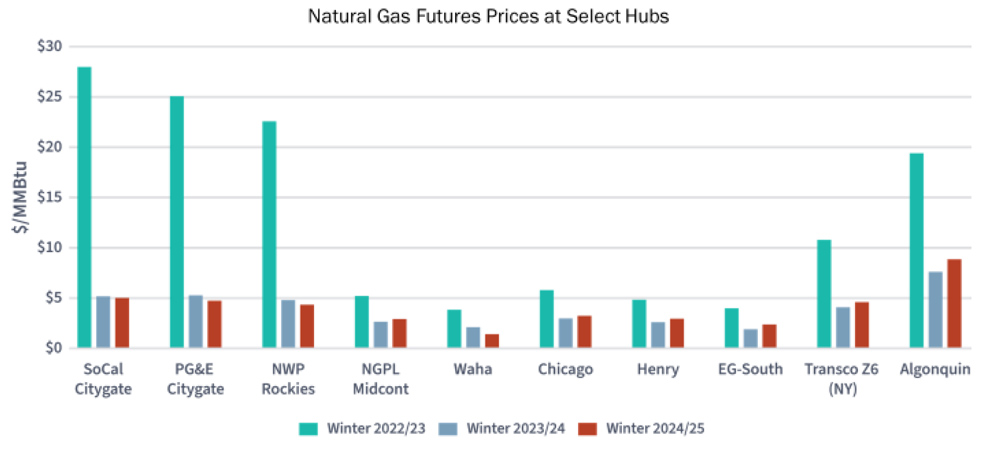CARMEL, Ind. — MISO further embraced the industry’s move to chance-based transmission planning by hosting a Probabilistic Planning Symposium at its headquarters.
The grid operator and consulting firm Energy and Environmental Economics pulled together stakeholders, other RTO planners, researchers and tech representatives to probe prospective planning methods and fret over the shortcomings of current practices Nov. 19-20.
Director of Economic and Policy Planning Christina Drake said when she joined MISO, planning was carried out on a relatively gradual timeline compared to the urgency today.
“We’re seeing these loads come on quicker than we can keep up,” she told attendees.
Drake said of late, MISO is having “friendly but frank” conversations with companies whose building goals are stymied by the limits of today’s transmission capacity.
She said just a few years ago, MISO was met with skepticism that its third, most aggressive planning scenario — which predicted electrification stimulating significant demand — would ever come to pass.
MISO announced earlier in November that it will revise its three, 20-year transmission planning futures — which envision the clean energy transition at a walk, a jog and a run — to be more in touch with recent realities of surprising load growth and accelerated clean energy goals. (See MISO Pauses Long-range Tx Planning in 2025 to go Back to the Futures.)
“And now we’re getting feedback that we think you’re near your top end on your load [predictions],” Drake said. “The drivers are changing. It’s no longer electrification; it’s things with hydrogen and data centers. That’s very different.”
Drake said the pace of change is so dramatic that MISO’s planning modeling is becoming unsolvable. “Our tools have never seen this. It’s pushing our models to the brink,” she said. “Now we’re projecting things 10 years faster.”
SPP Manager of Transmission Planning Kirk Hall seconded experiencing trouble trying to produce realistic models.
“We’re having to constantly add fictitious equipment … just to get our reliability models to solve,” he said.
“If you’re asking if the probabilistic planning tools are sufficient? The answer is no,” NYISO Director of System Planning Yachi Lin said.
Lin said New York’s past 35 years contained little in the way of transmission planning. Recent years, on the other hand, have contained about $15 billion in transmission and distribution investment, she said, owing to the state’s progressive climate goals.
Lin said New York City alone has an “acute” problem of having to retire several aging, combined cycle units, while new, zero-emission generation needs to occupy as little acreage as possible. She said advanced technology is years away, with a “big gap of getting there.” Lin likened transmission planning around those unknowns to layering up slices of Swiss cheese.
“There are holes, we know. But hopefully, if you have enough slices, you can cover the gaps,” she said.
Drake said building an economic model takes an amount of work that’s often not appreciated. She said it’s a level of challenge that’s on par with delivering a baby.
“It took a solid nine months, and there was a lot of crying and pain in the middle,” she joked of creating a successful model.
Drake added that just to get a model to solve today takes an “intense” effort. She said she felt like bringing planners a “Gatorade and a towel” after they’re successful.
ERCOT Power Systems Engineer Eric Meier also said that there aren’t any tools “off the shelf” today that can effectively evaluate probabilistic planning.
Drake said grid planners’ challenges are compounded by trying to anticipate yearly bouts of increasingly extreme weather and generation outages.
“This is new territory for all the RTOs,” she said.
Drake said extreme weather instances are driving an “insatiable” need to improve interregional transfer capability, evidenced by MISO’s new interregional studies with SPP and PJM.
During the symposium, grid planners named other obstacles to identifying the most useful transmission projects decades in advance.
MISO Senior Manager of Policy and Regulatory Planning RaeLynn Asah said load growth is the greatest uncertainty for today’s planning.
“It’s astronomical — I don’t know what word I want to use. It’s so large, and it’s so unknown,” Asah said.
Asah also said too-slow regulatory processes and seized-up supply chains are sources of anxiety. “They are a big deal. They keep me up at night,” she said.
However, Asah said there’s reason for hope. She said MISO is building a new planning model designed to be more responsive so MISO more easily can incorporate stakeholder suggestions and influence the model.
“I want to end on hope instead of the things we can’t do yet,” she said.
Lin said retaining a planning staff is becoming more challenging with stiff competition between planning organizations. “It’s a friendly competition among the ISOs/RTOs. And that’s great, but we always want to make sure our people are taken care of,” she said.
Climate Unknowns
MISO dedicated panels to climate change, a little-used phrase among the politically agnostic grid planner.
Argonne National Laboratory engineer Neal Mann said the lab’s projections of future weather patterns across a range of scenarios through midcentury and end of century seek to predict the more frequent heating and cooling degree days in addition to risks like flooding.
Mann said planners might want to “use their neighbors like a battery” to tap into their supply when they fall short.
The Electric Power Research Institute’s Parag Mitra said EPRI’s Climate Resilience and Adaptation Initiative (READi) collaborative model helps planners make decisions that will make the system more durable against ever more dangerous weather. Mitra said planners need to have a good understanding of how weather can affect assets.
Con Edison’s William Gunther said his utility is analyzing future multiday wind lulls and high midday solar output that is squirreled away in storage for later use. He said a Con Edison climate vulnerability study delved into how high substations need to be positioned due to sea level rise as well as the potential for undergrounding lines when temperatures are too hot for transformers to be in the open air.
Mitra said while there is a need for scenario-based planning that draws on probabilities of extreme events, it’s also valuable to analyze extreme events after the fact to pinpoint where conditions began a downward slide. He said demand response also can play a role in climate resilience.
But University of Michigan Professor Michael Craig said he discouraged planners from assigning climate disaster probabilities for planning purposes.
“When we think about climate change, I want to advise against using probabilities. Because we do not know … a meaningful probability of future climate scenarios,” Craig said. “Climate change is not a problem for 30 years from now; it’s increasing extremes today and tomorrow and the year after.”
Instead, Craig advocated stress testing solutions in modeling against wide-ranging degrees of extreme heat, extreme storms and extreme drought.
“It’s not like we hit 2050 and it turns over. Every year, those dice get loaded; every year you might have more extremes,” he explained.
New Analytics
Johns Hopkins University professor Benjamin Hobbs advised grid planners to adopt stochastic programming, which mulls multiple scenarios simultaneously and uses decision trees to come up with the most beneficial investments. He said MISO comes close to stochastic planning with its futures-based planning.
“The grid that you’re building needs to be nimble to be adaptive to economics, policy, climate,” Hobbs said.
Hobbs said a stochastic approach is useful for MISO, which contains states with and without carbon limits and renewable portfolio standards.
He said MISO could plug in variables like technological advancements, load growth, fuel costs, capital costs and carbon costs and limit potential solutions by constraints like siting limitations, emissions reduction standards and Kirchoff’s circuit laws.
Hobbs said he wasn’t suggesting planners could “naively” load up variables and expect a model to pinpoint the best grid solution. “What you’re getting from the model is suggestions,” he said. “All forecasts are wrong, so it’s important to consider a wide range of them.”
Iowa State University professor James McCalley made a case for adaptive co-optimized expansion planning, which shows the costs of grid expansions based on a specific future build (or a core) and the costs of adaptations to the original plan that may be necessary.
McCalley said the adaptive approach is a “cousin” of stochastic planning but not the same because the method is designed to show costs through time.
“I would make the case that both of these methods are useful tools in a planner’s toolbelt to understand the best way forward,” he said.
McCalley said adaptive co-optimized planning shouldn’t be a substitute for the PROMOD commitment and dispatch model, Siemens’ PSS®E Power Simulator or EPRI’s Electric Generation Expansion Analysis System. Rather, he said the method should be layered over them as an application to guide decisions.
McCalley said planners should continue to use their deterministic tools and introduce new, probabilistic analyses until they form a “single integrated method of doing the work.”
McCalley said he knows firsthand from his experience as a PG&E planner in the late ‘80s that deterministic planning leaves much to be desired. He recalled being grilled over planning practices in front of the California Public Utilities Commission.
“Probabilistic planning isn’t going to be a quantum leap for anyone. It’s going to be a journey, and we need to start now,” Mitra said.
AI Assistance
“Our grids are facing pressures like they’ve never faced before,” Microsoft’s Bilal Khursheed agreed, but offered AI as a means to lessen the tension.
Khursheed said the recent leaps in AI can better balance supply and demand in real time, improve resource utilization, assist in resource planning, better predict maintenance, provide the best insights to operators and speed the clean energy transition, among other things.
“These advancements aren’t incremental. They’re truly transformational in nature,” he said.
Khursheed said grid planners should think of AI as “the brain of modern grid flexibility,” the internet of things as “the eyes and ears of the grid” and the cloud as “the backbone of the ecosystem.” He also said planners first must consider the “balancing act” of leveraging the most they can from existing assets before deciding to physically expand the grid.
“It’s not just about building more. It’s about spending only when we absolutely have to,” he said.
Khursheed said AI’s sophistication can defer capacity investments by harnessing virtual power plants to provide flexible resource adequacy. He said Microsoft recently worked with a “large western European” transmission operator and found that it could cut “overcommitted fossil fuel resources” by 17 GW over the length of the pilot program through high-performance AI computing that helps operators make better use of cheaper, carbon-free resources.
The pilot saved the operator “millions of Euros,” Khursheed said, and the topology optimizer is set to be rolled out on a large scale in the footprint.
Khursheed said transmission operators are shifting from being “reactive” when facing storms and temperature extremes and using generative AI to figure out earlier which assets are likely to take a hit and what transfer capability stands to be the most helpful.
However, Khursheed said Microsoft is risk-averse and thus far is making sure AI is providing more accurate data sooner to “drive levels of productivity we’ve not seen before” but not running the grid autonomously.
“There’s still a human-in-the-loop component,” he said.
